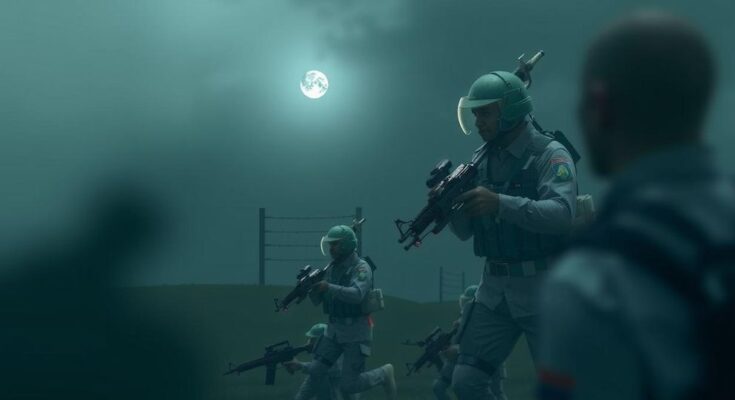Russia vetoed a UN resolution seeking an immediate ceasefire in Sudan, which has been engulfed in conflict since April 2023. British officials condemned the veto, citing obstructive behavior from Moscow. The ongoing war has resulted in severe humanitarian crises, with millions displaced and facing food shortages. Overall, the situation reflects broader geopolitical tensions among world powers at the UN.
On November 18, 2024, Russia exercised its veto power at the United Nations Security Council to block a resolution aimed at ceasing hostilities in Sudan, where conflict between two rival military factions has persisted since April 2023. The draft resolution, co-authored by Britain and Sierra Leone, urged an immediate end to the fighting and encouraged the initiation of peace talks. British Foreign Secretary David Lammy condemned Russia’s decision as a “disgrace,” emphasizing that it obstructed the council’s unified stance on the crisis. Despite previous abstentions, Russia appears to have aligned more closely with General Abdel Fattah Al Burhan’s forces during the negotiations. The ongoing conflict has led to significant humanitarian crises, with millions displaced and food shortages affecting a large portion of the population.
The current conflict in Sudan involves a struggle for power between General Abdel Fattah Al Burhan, who leads the national army, and General Mohamed Hamdan Daglo, head of the paramilitary Rapid Support Forces (RSF). This conflict, which erupted following a coup in 2021, has escalated dramatically, resulting in tens of thousands of civilian deaths and the displacement of millions. The humanitarian crisis has drawn international attention, yet efforts to stabilize the situation have been hampered by geopolitical tensions, particularly around the roles of major powers like Russia and the United States. The Security Council’s inability to pass resolutions on Sudan reflects deeper divisions among its permanent members, undermining the UN’s capacity to facilitate effective conflict resolution.
The veto by Russia illustrates the ongoing geopolitical divides that complicate international responses to humanitarian crises like that in Sudan. The rejection of the ceasefire resolution not only highlights the divergences among global powers but also the dire humanitarian situation facing millions in Sudan. As the fighting continues, it remains uncertain what measures, if any, will successfully bring about peace or humanitarian relief to affected populations.
Original Source: jordantimes.com




